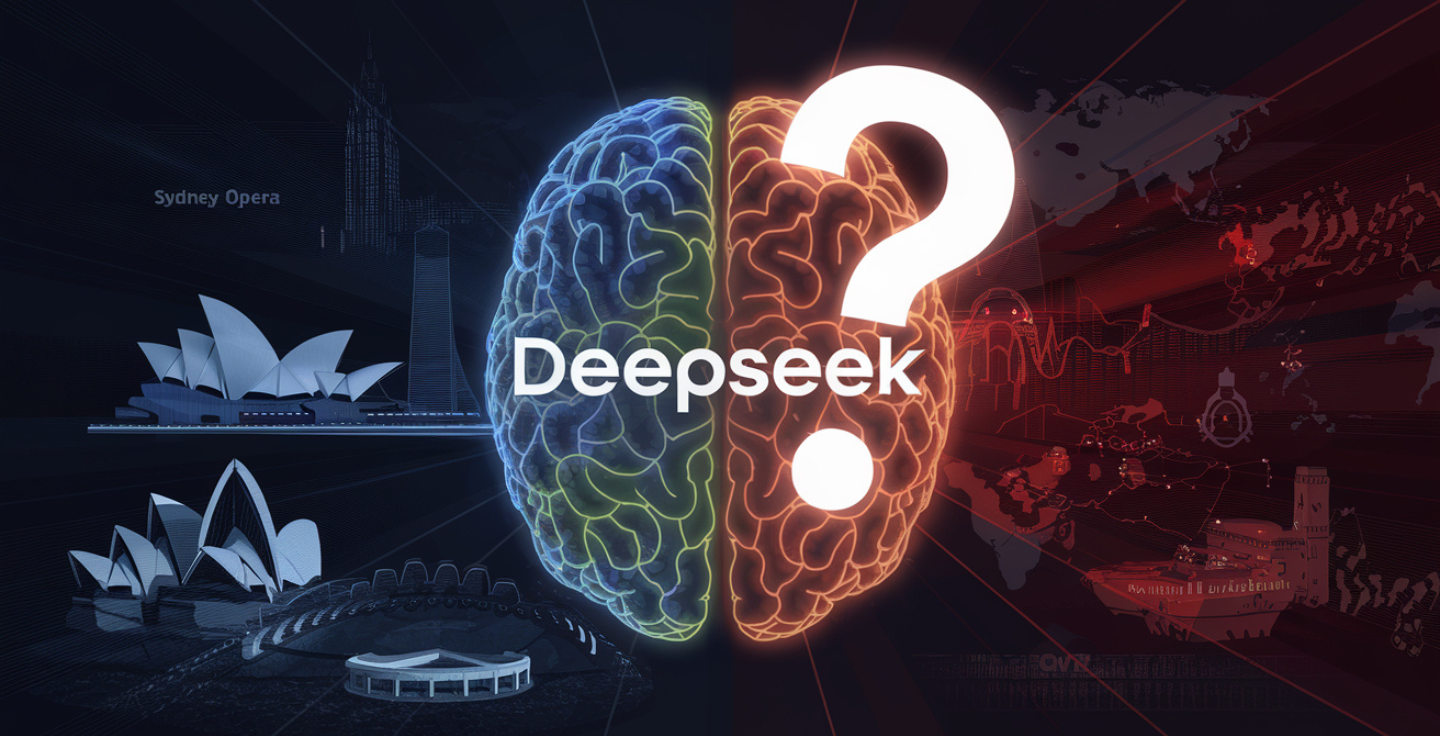The Rise of DeepSeek AI: Innovation or Global Security Threat?
By Avish | 2/5/2025 11:03:14 AM

The Rise of DeepSeek AI: Innovation or Global Security Threat?
Artificial intelligence is changing everything, and on the vanguard of this revolution is a Chinese firm called DeepSeek AI. This is stunning and scary the governments across the globe. It proved that it was possible to fashion new AI models cheaply and efficiently doing away with an idea that it needed huge resources and billions of dollars.
But this invention raises red flags about data security, national security and abuse. Four countries—Australia, India, Italy and Taiwan—banned or restricted DeepSeek from government computers for fearing the Chinese Communist Party will dominate AI technology.
As the war over AI regulations intensifies, this one question remains unanswered: Who should dominate the future of AI?
DeepSeek's Breakthrough: A Game Changer in AI
For years, firms like OpenAI, Google, and Microsoft dominated the AI innovation space. They spent their billions training large models like GPT-4 and similar others. The general perception was that AI cannot work unless and until there's enough computing power, special software, and enormous data centers.
That opened the door for DeepSeek AI from Hangzhou, China, who came and proved that AI innovation does not always have to incur a rocketous price tag. Their new model, DeepSeek R1, was trained on just 2,000 Nvidia chips at about a $6 million cost, which is far less than the more than $100 million spent training GPT-4.
The impact was immediate. The markets worldwide responded with sharp reactions to tech stocks; over $1 trillion was lost when investors had no choice but adjust to a new AI reality. Nvidia lost 17%, signifying the great extent by which DeepSeek has shaken the world.
With power comes responsibility and scrutiny
Why Nations Are Banning DeepSeek AI
The new DeepSeek technology brought the fears into world politics, especially with regard to privacy, spying, and foreign interference. The government is afraid that the Chinese government will have access to the models developed by DeepSeek because, in the opinion of the authorities, they will use them for spying, spreading lies, or conducting mass surveillance.
Action in Australia
On February 4, 2025, Australia has been the first country that banned DeepSeek AI on all government computers. According to this matter, Home Affairs Minister Tony Burke states that the AI tool posed an "unacceptable risk" to national security, with persistence that the government cannot keep quiet on the risk of interference by foreign AI tools.
India's Ban
Within a few days later on January 29, 2025, the Indian Ministry of Finance issued a notice that banned DeepSeek AI and ChatGPT on all government computers. It was signed by the Joint Secretary Pradeep Kumar Singh. The notice stated that AI applications posed the risk of putting the sensitive information of the government at stake and requested employees to put a stop to their usage of the said applications.
Other countries are acting: Italy and Taiwan have the same embargo imposed on DeepSeek AI due to privacy and law of AI. In the United States, the government organizations banned DeepSeek. Organizations like NASA, the Pentagon, also controlled the use of DeepSeek fearing cyber hacking.
IBM CEO Future Outlook: Democratization is the Need for AI Future
DeepSeek has also faced accusations of big companies dominating AI instead of open source development. According to IBM Chief Executive Arvind Krishna recently, the DeepSeek model proved that AI should not be a preserve for the select few giant companies.
Krishna said future of AI has to be decentralized. This would mean that small companies, research labs, or universities easily develop low cost AI models, without necessarily expending a huge amount of equipment. He said that according to IBM research, the small, compact AI models can bring cost cutting up to 30 times, making AI more sustainable and affordable. He even further stated that data privacy, transparency, and adhering to ethical principles of AI need not be abandoned to those who do not really care about data privacy, among others.
Who Controls AI? The Bigger Picture
This world needs to make such a massive call, with 2025 already here. And now it's not who will change the AI but who controls the future. DeepSeek shows that small and cheap AI models can compete with the big companies. Meanwhile, security, ethics, and control by nations have become growing concerns.
- Is it right that just a few large players like OpenAI, Google, and Microsoft should dominate the development of AI?
- Or is AI supposed to be open for more people so that they can develop and compete?
- Can governments find a balance between innovation and safety?
Indeed: AI is no longer a technology but a battlefield for global power. With increasing numbers of countries considering AI regulations, that is just the first question of the DeepSeek conversation into all matters future and artificial about artificial intelligence in global politics.

